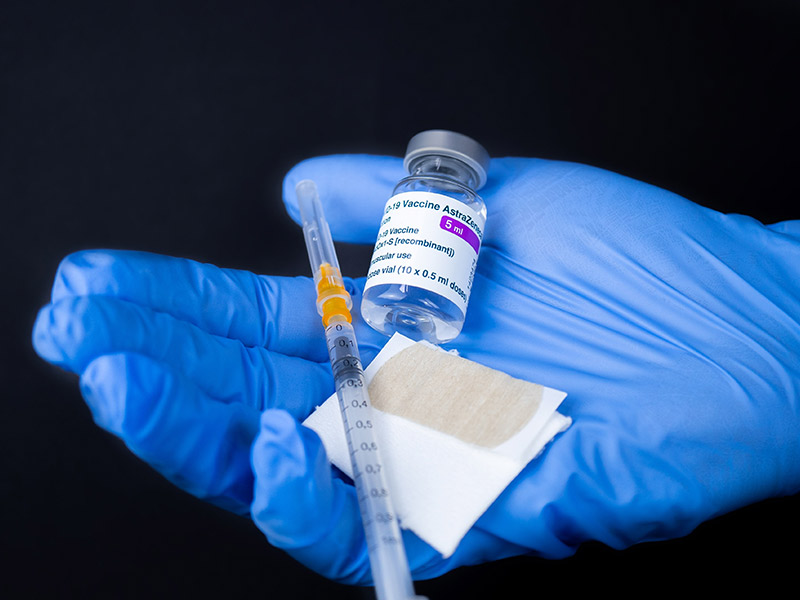
A recent study undertaken in the United Kingdom found a link between COVID-19 vaccines and rare neurological conditions. The jabs involved were those developed by the AstraZeneca/University of Oxford and Pfizer/BioNTech. However, the chances of getting these conditions were found to be higher among those who tested positive for COVID-19. This highlights the importance of getting jabbed for the novel coronavirus, which causes COVID-19.
Table of Content:-
As a part of the study, which is said to be the most comprehensive, the researchers from the University of Oxford and the University of Edinburgh analysed data of 32 million individuals in the UK who got their first shot between December and May. 20 million of them received the Astrazeneca/Oxford shot while the remaining 12 million got Pfizer/BioNTech’s COVID vaccine. They also analysed the data of two million people who got infected by the novel coronavirus during this period. The findings of the study were published in the journal Nature.
What Did The Study Find Out?

(Photo Credit: Unsplash)
Here are the findings of the study:
- 38 extra people per 10 million who received Astrazeneca’s COVID vaccine developed Guillain-Barré syndrome. It is a very rare and serious neurological condition that affects the lungs. It causes numbness, weakness and pain in the affected area, which largely comprises the feet, hands and limbs. However, it can also spread to the chest and face. Most patients respond well to the treatment and make full recovery, however some develop serious issues and the condition can turn life-threatening.
- Similarly, in the case of Pfizer/BioNTech’s vaccine, there were an estimated number of 60 extra cases per 10 million people suffering from hemorrhagic stroke.
A smaller study conducted in Scotland found a similar link between Astrazeneca’s vaccine and Guillain-Barré syndrome. However, it found no such connection between Pfizer’s shot and hemorrhagic stroke. Despite the cases, the incidence of such rare neurological conditions was found to be higher among those infected with COVID-19.
- 145 extra people per 10 million who tested positive for COVID-19 developed Guillain-Barré syndrome.
- 123 extra people per 10 million who got infected with the virus suffered from encephalitis, meningitis and myelitis.
- A higher risk of stroke was also found out but only upto seven days after testing positive for COVID.
The data clearly shows that you have a greater risk of developing these rare neurological conditions from COVID-19 than the vaccines for these. The scientists are now studying the effect of vaccines after the two doses.
Also read: Does COVID Vaccine Improve Mental Health? Study Finds Out
Side Effects Of COVID Vaccines

(Photo Credit: Unsplash)
Some side effects after getting jabbed are common, such as:
- Fever
- Fatigue
- Muscle pain
- Headache
- Diarrhea
- Chills
- Pain at the injection site
Also read: Covid-19 Vaccine Gives Magnetic Abilities? Here's The Truth Behind This Viral Social Media Video
These are some common side effects. However, there might be some rare serious complications. After AstraZeneca’s vaccine was linked to rare blood-clotting cases, some countries discontinued the jab. Similarly, mRNA vaccines such as that of Pfizer and Moderna caused some inflammation, which was more common in younger men. No matter what the side effects, the effectiveness of these vaccines still outweigh the risks, thus it is extremely crucial to get vaccinated for COVID-19.
Photo Credit: Unsplash
Also watch this video
How we keep this article up to date:
We work with experts and keep a close eye on the latest in health and wellness. Whenever there is a new research or helpful information, we update our articles with accurate and useful advice.
Current Version